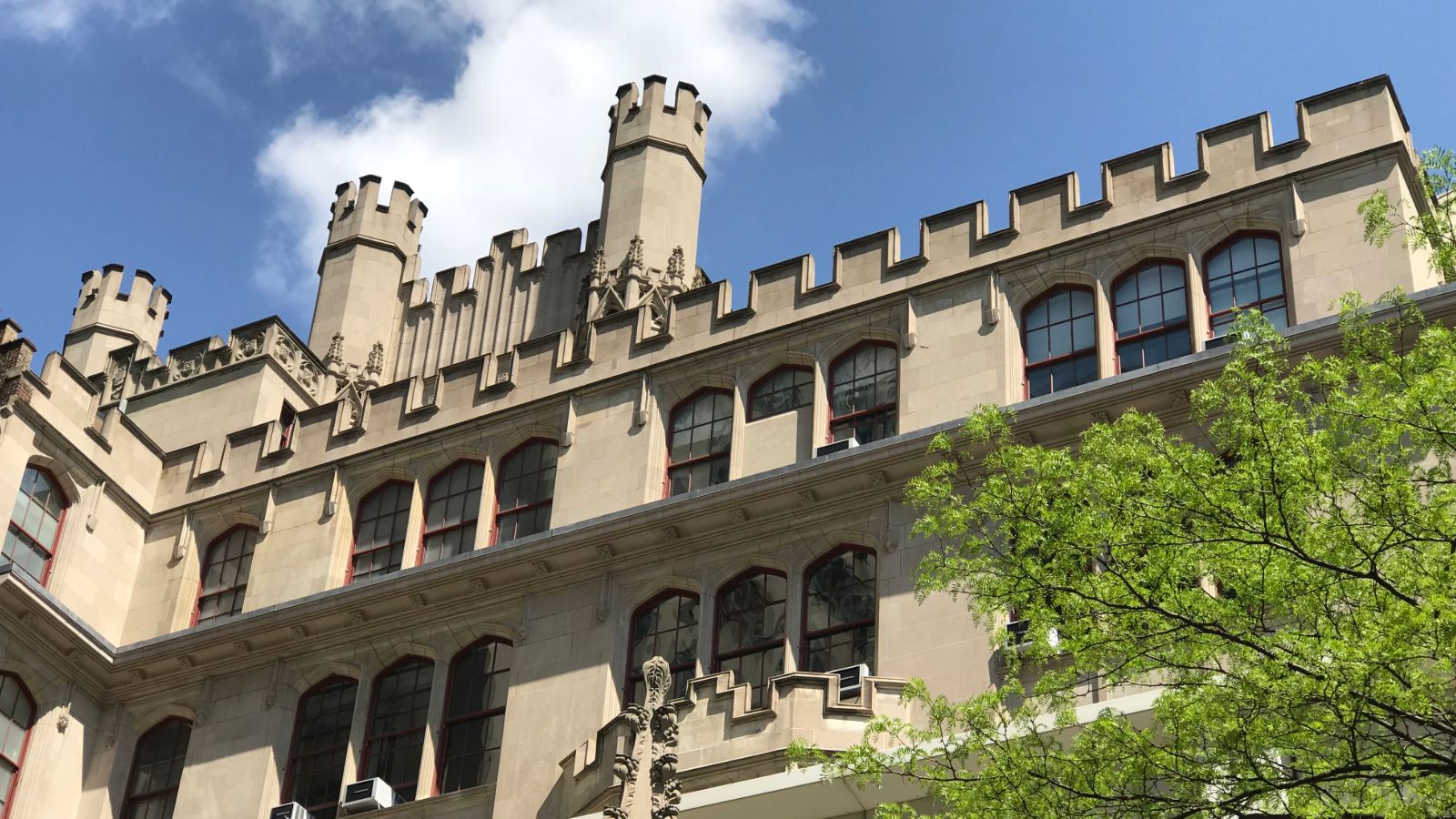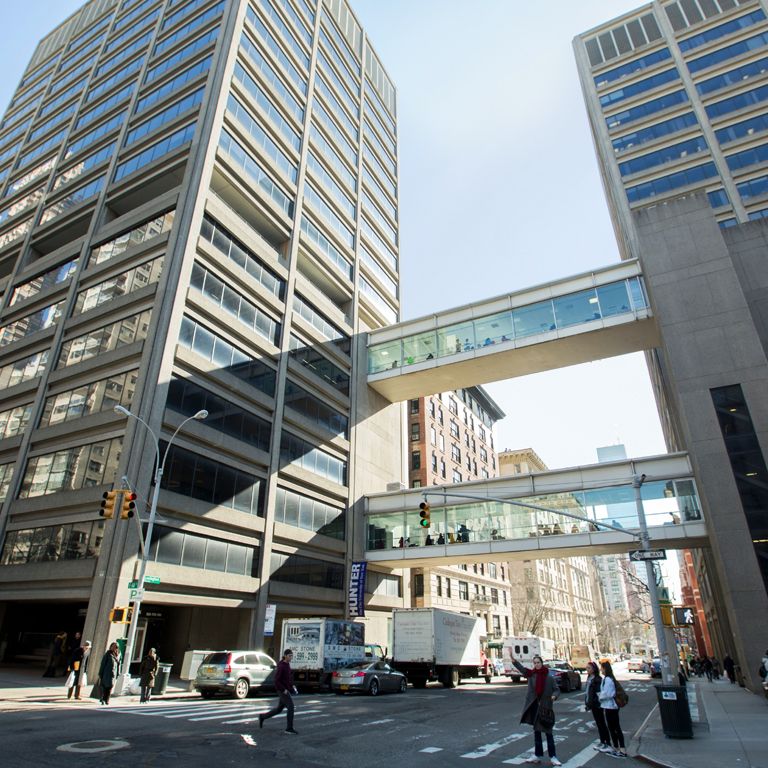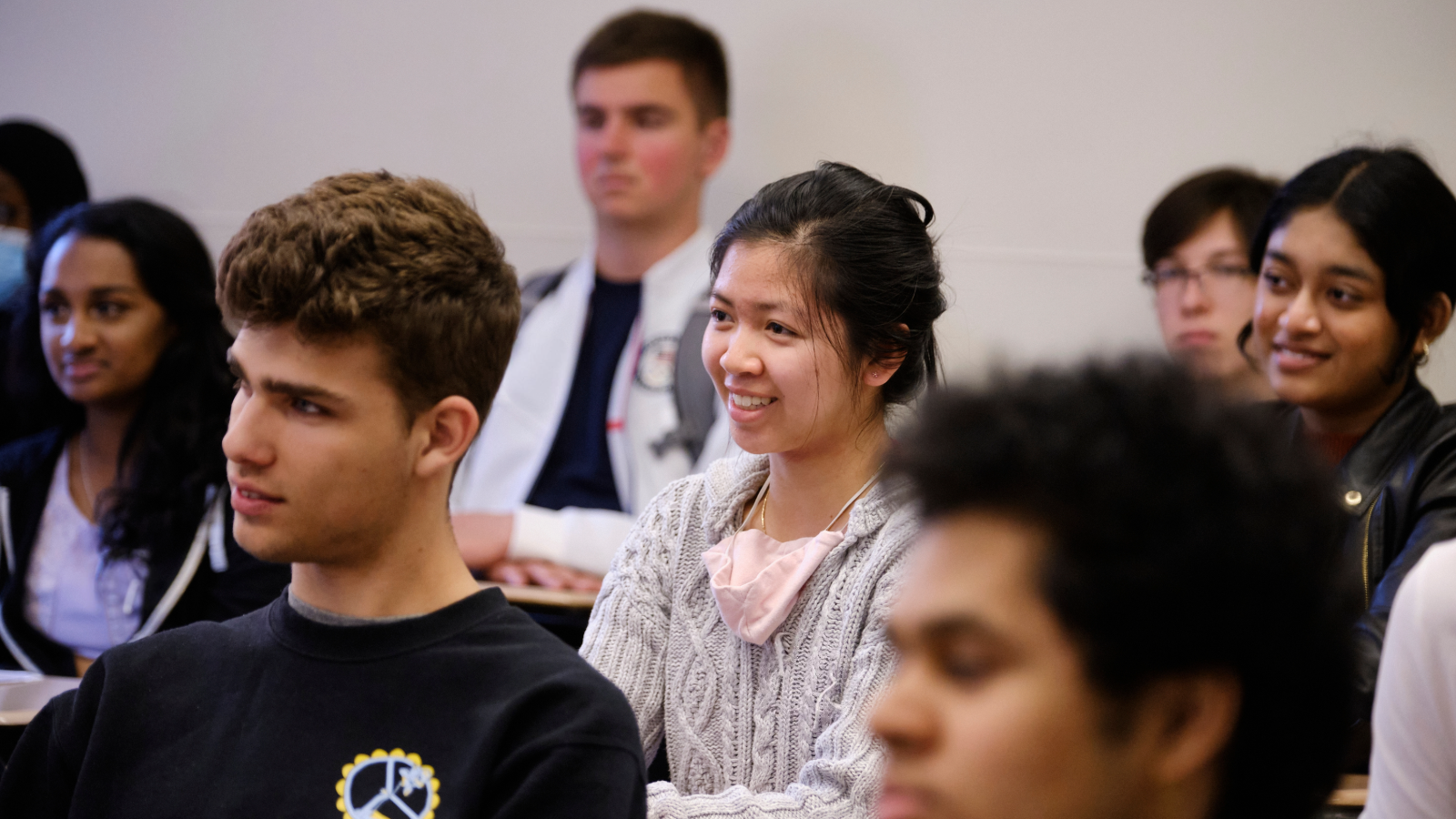Middle States

Accreditation
Is in Progress
Hunter College of the City University of New York is an accredited institution of higher education and a member of the Middle States Commission on Higher Education (MSCHE). MSCHE is an institutional accrediting agency recognized by the U.S. Secretary of Education.
Accreditation is a process of peer review in which colleges and universities apply for accreditation and, once accredited, must adhere to the standards of quality and integrity set forth by their accrediting organization. Accreditation is not only an affirmation of the quality of the institution’s educational program but also a federal requirement for students and faculty applying for funding from federal agencies.


- Application of the Standards within the Context of an Institution’s Mission and Goals
- Centrality of the Student Experience
- Reflection on Diversity, Equity, and Inclusion
- Emphasis on Data and Evidence-based Decision-making
- Innovation as an Essential Part of Continuous Improvement
Accreditation Process Overview
The Middle States Commission conducts an accreditation review every eight years for each member campus. The process begins for the campus with a wide-ranging self-study to evaluate its performance against Standards for Accreditation and Requirements of Affiliation. From start to finish, the preparation process typically takes between two and three years.
Within the context of the seven standards, the self-study examines a short list of mission-related strategic priorities, improvements since the last self-study, outcomes based on assessments of institutional effectiveness, and institutional improvements proposed for implementation prior to the next self-study. Largely an assessment of past performance, the self-study also looks ahead and must be an important planning document in addition to its function as a performance evaluation.
Following the completion of the final self-study report, the visiting team of volunteer faculty and administrators, selected specifically by Middle States for the campus under review, will determine if the institution warrants reaccreditation. After meeting with various groups and individuals on campus over two days, the visiting team files a recommendation with the commission, which in turn issues the official judgment.

Current Accreditation
Hunter prepared its last self-study between 2017 and 2019. The team visit occurred in May 2019 and the commission accepted the team’s recommendation and reaffirmed Hunter’s accreditation on November 25, 2019.
Looking Ahead
In fall 2024, Hunter is beginning the reaccreditation process with the appointment of Acting Dean of Arts and Sciences Erica Chito-Childs and Prof. Thomas DeGloma as co-chairs of the steering committee. The co-chairs will help select a steering committee to guide seven workgroups (one for each standard) in researching and writing drafts for the self-study. Prior to that work, however, the campus will need to develop its “Self-Study Design,” with the first draft due on August 1, 2025. By spring 2027 there should be a self-study draft shared with the campus for comments. The visiting team will come to the campus for three days in fall 2027. Hunter can expect a final decision on reaccreditation in spring 2028.

Middle States Working Groups
Working groups are now being formed to address each standard. Each group has two co-chairs who sit on the Steering Committee. The groups and co-chairs are listed below. Anyone with an interest in joining one of the groups is encouraged to email middlestates@hunter.cuny.edu.
Standard I: Mission and Goals
- Peter Englot, SVP, Communications and External Affairs & Executive Deputy to the President
- Zachary Shirkey, Professor & Chair, Political Science
Standard II: Ethics and Integrity
- Ian Blecher, Doctoral Lecturer, Philosophy
- John Rose, Dean, Diversity and Compliance
Standard III: Design and Delivery of the Student Learning Experience
- Paul McPherron, Professor & Chair, English
- Nicole Bennett, Associate Provost & AVP, Academic Affairs
Standard IV: Support of the Student Experience
- Brian Buckwald, Assistant Dean, Student Achievement
- Joseph Fantozzi, AVP, Student Affairs and Enrollment
Standard V: Educational Effectiveness and Assessment
- Lawrence Kowerski, Associate Professor, Classical and Oriental Studies
- Gina Riley, Clinical Professor, Special Education
Standard VI: Planning, Resources, and Institutional Improvement
- James Mandiberg, Associate Professor, Silberman School of Social Work
- Justin Stec, Assistant Vice President for Finance and Business Operations
Standard VII: Governance, Leadership, and Administration
- Sandra Clarkson, Professor, Mathematics and Statistics
- Geralyn Lederman, Assistant Vice President, Academic Operations
Want to Get Involved?
68th Street Campus
East Building, Room 1701E
(212) 722-4150
middlestates@hunter.cuny.edu
